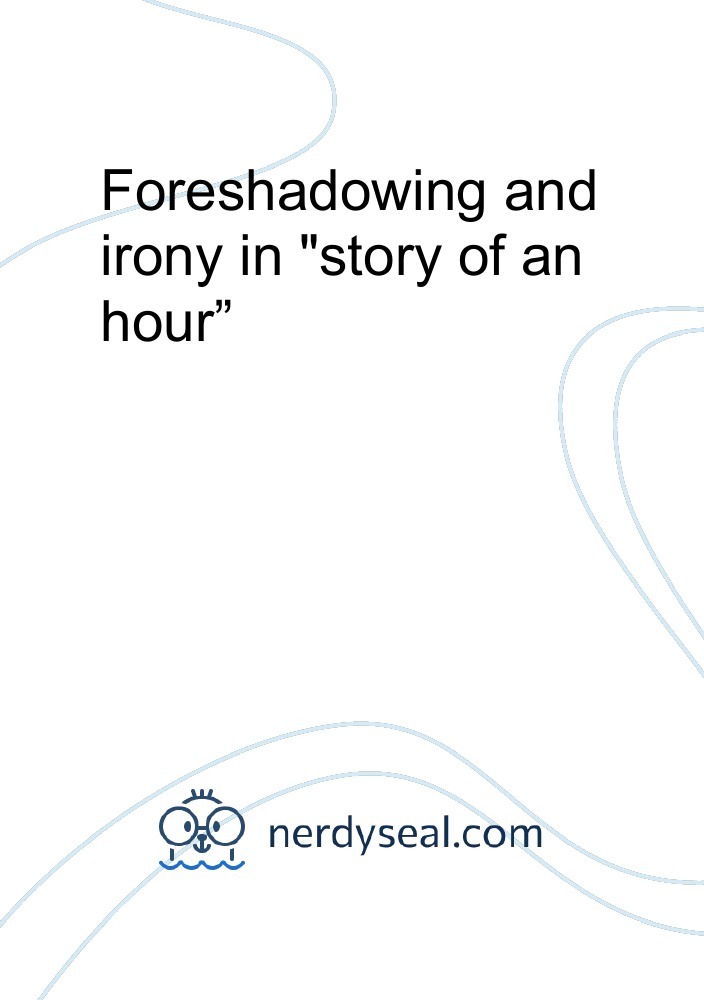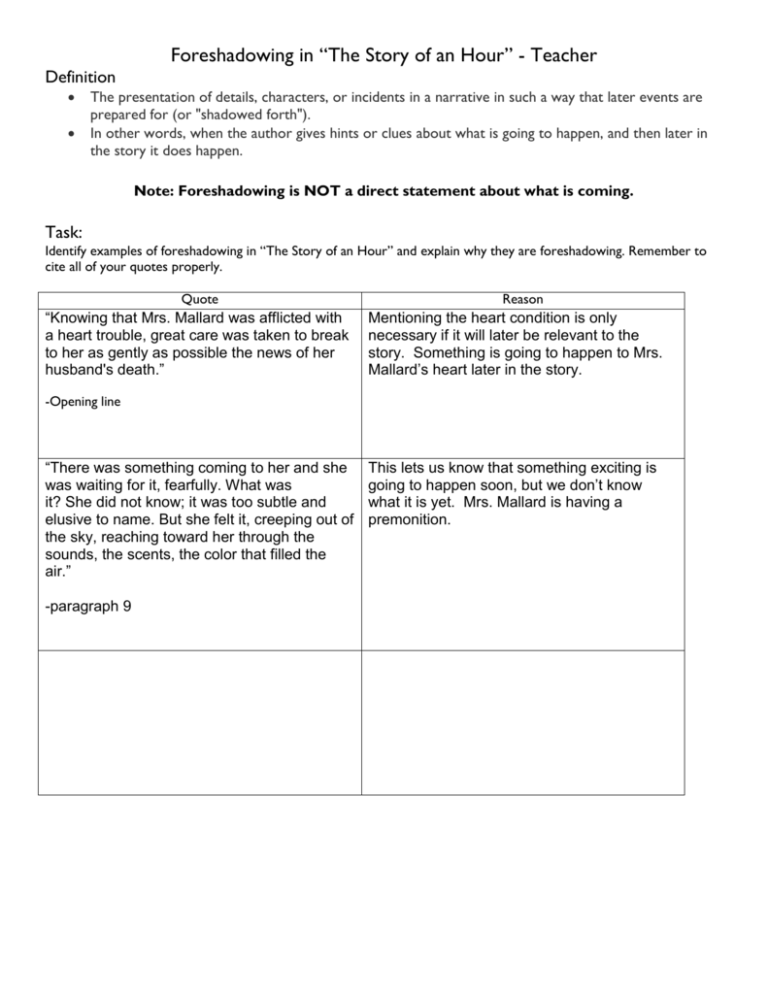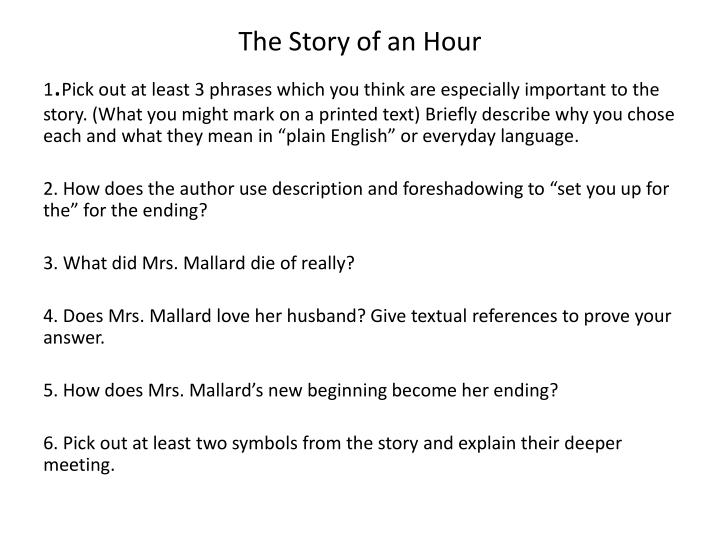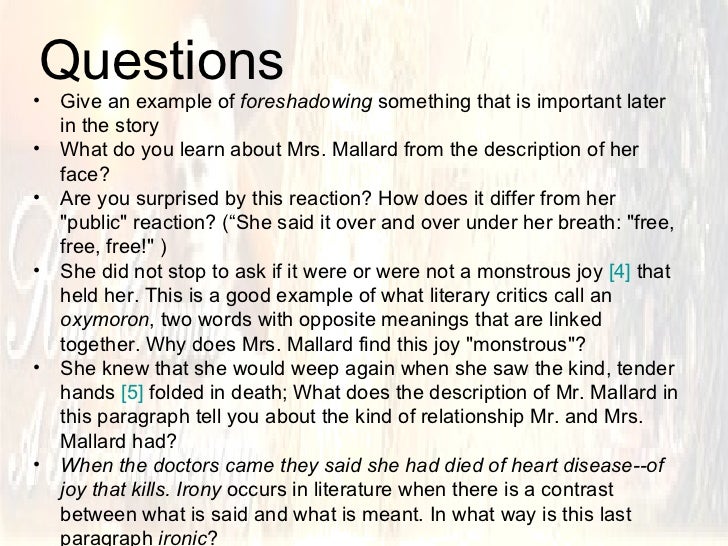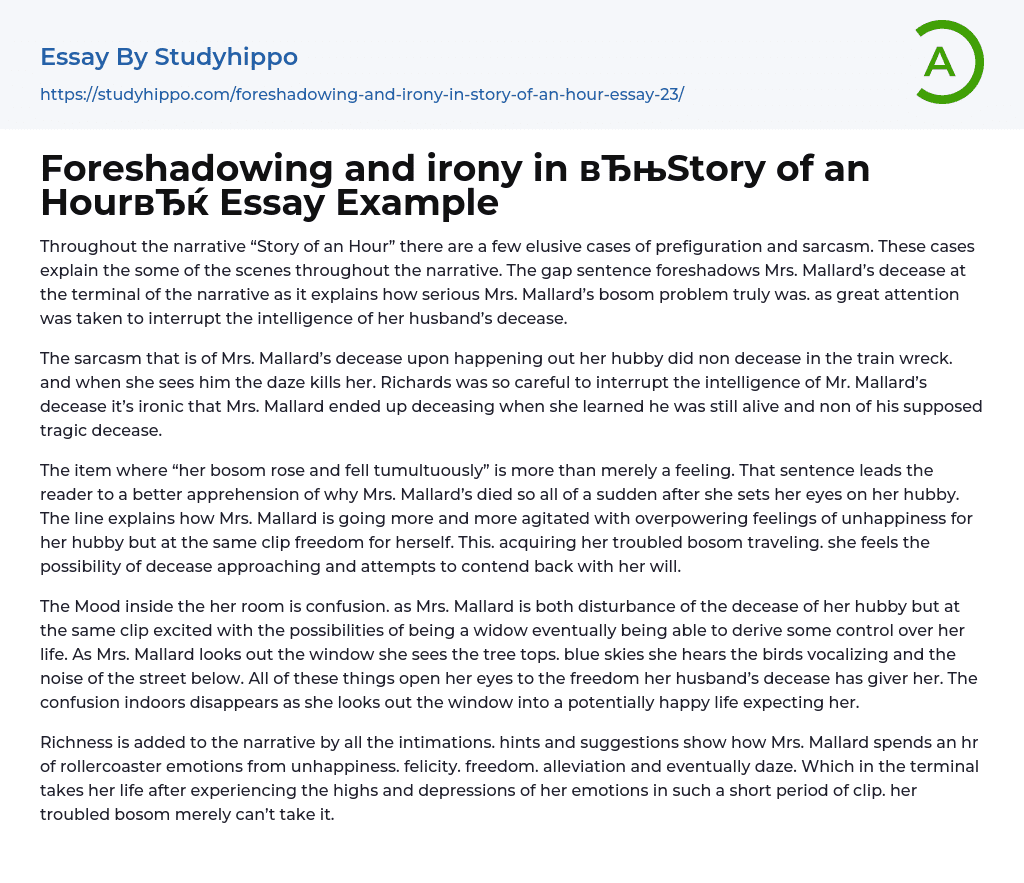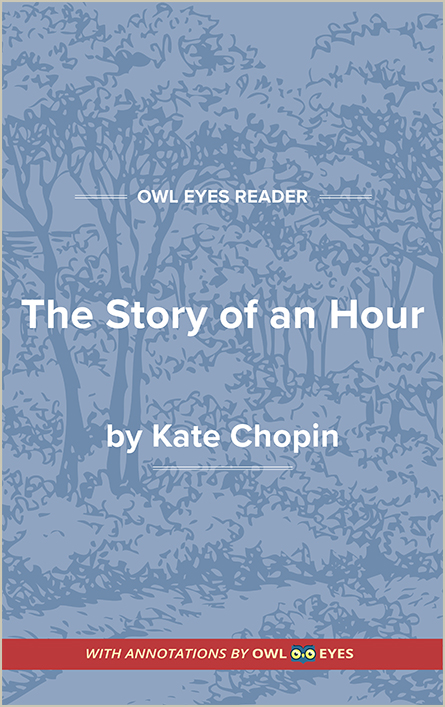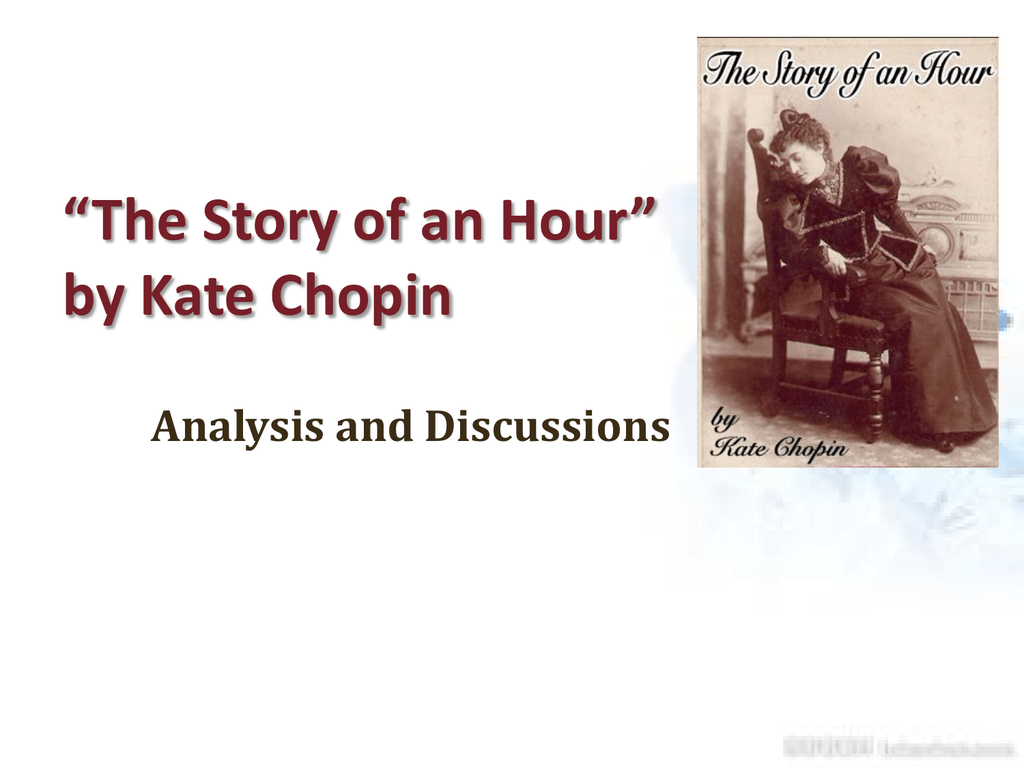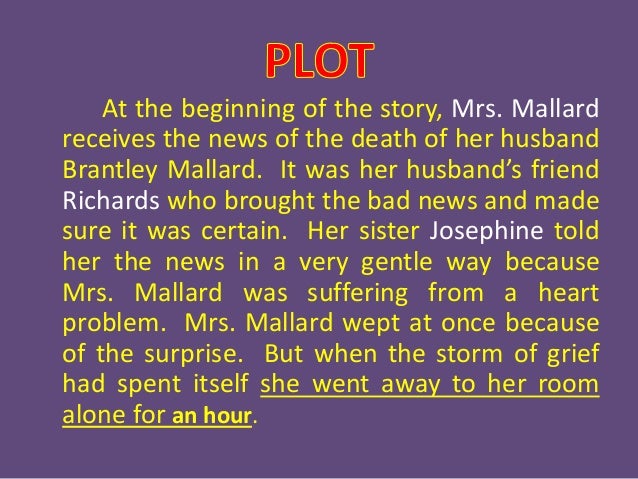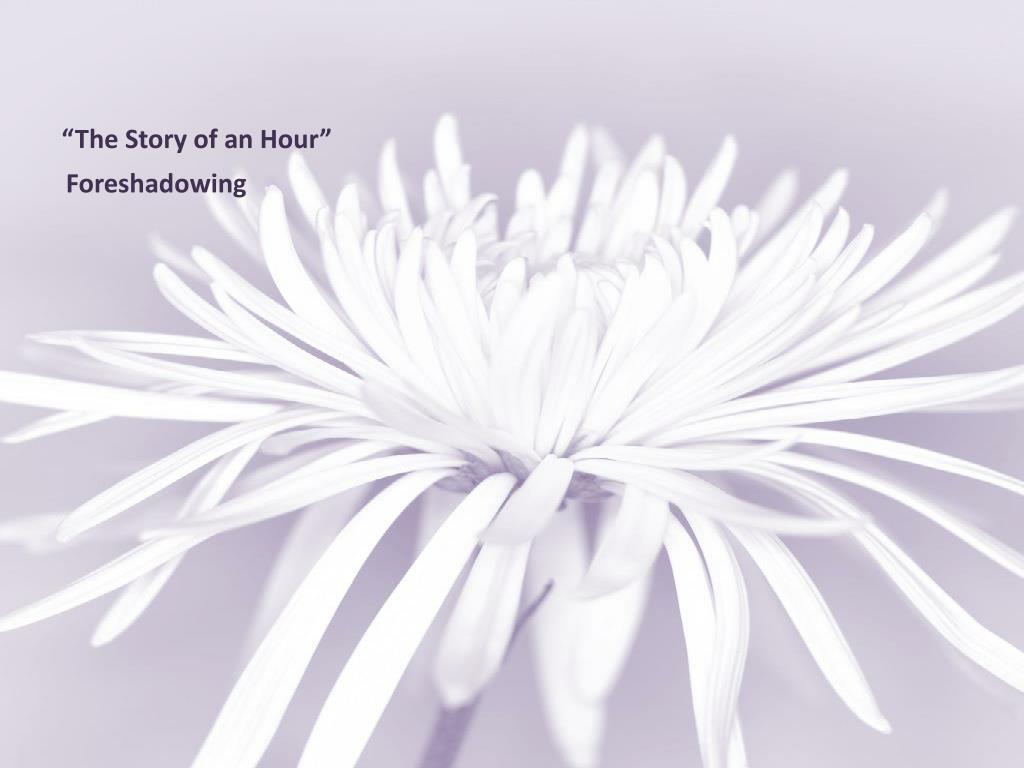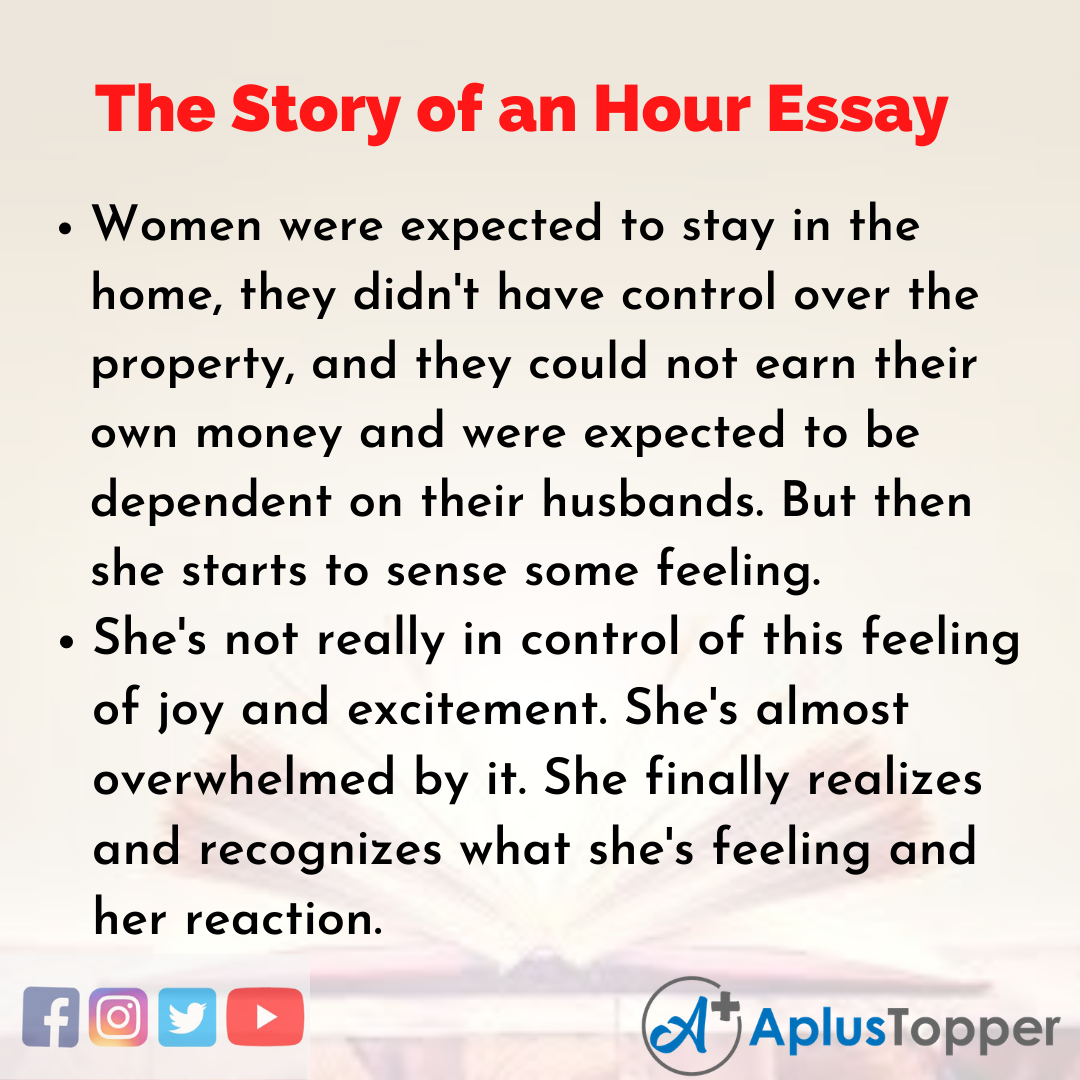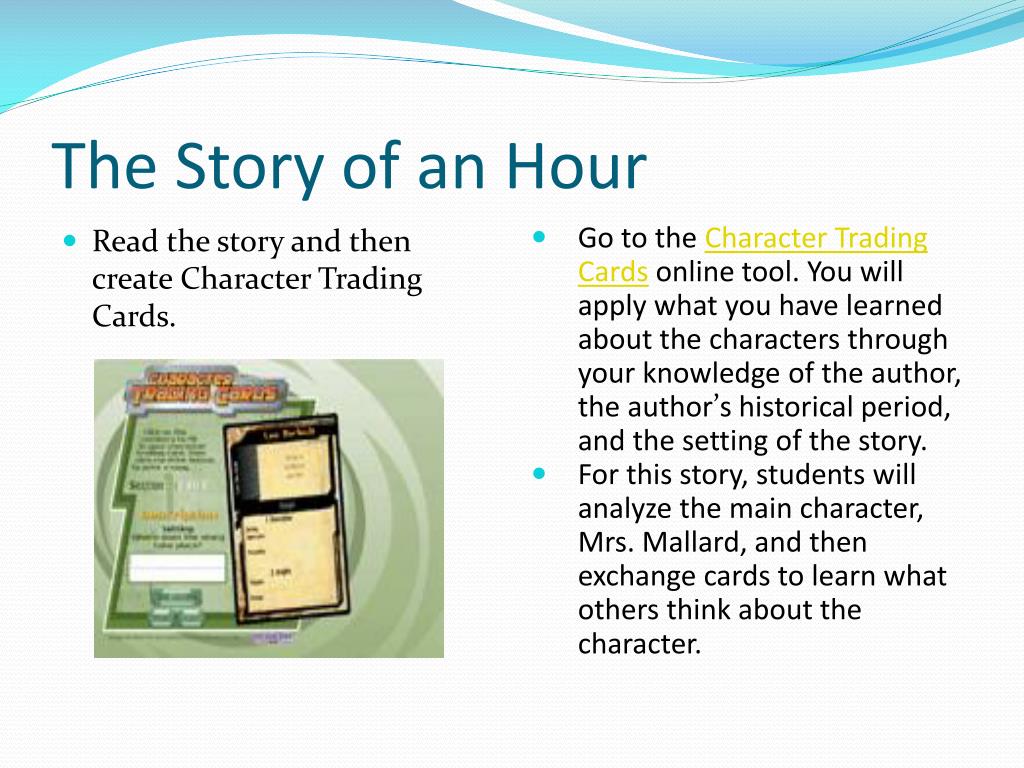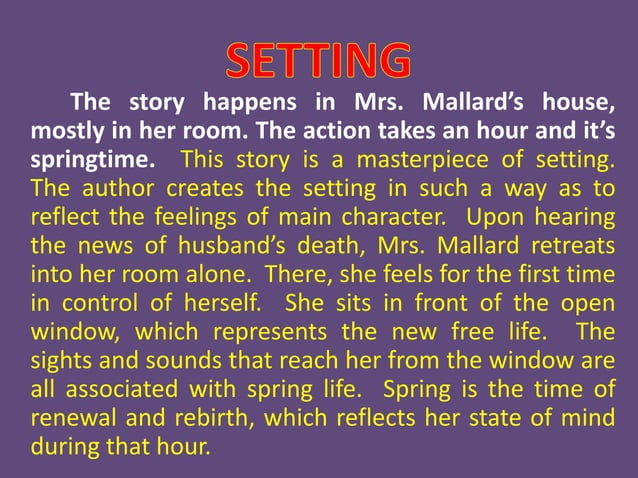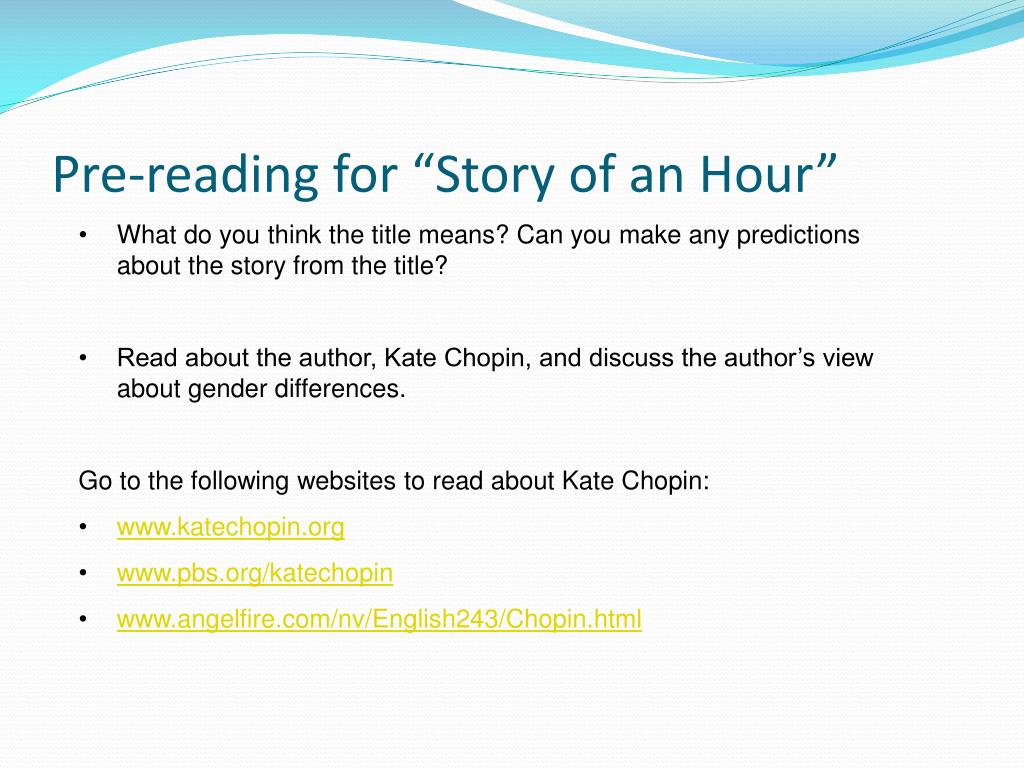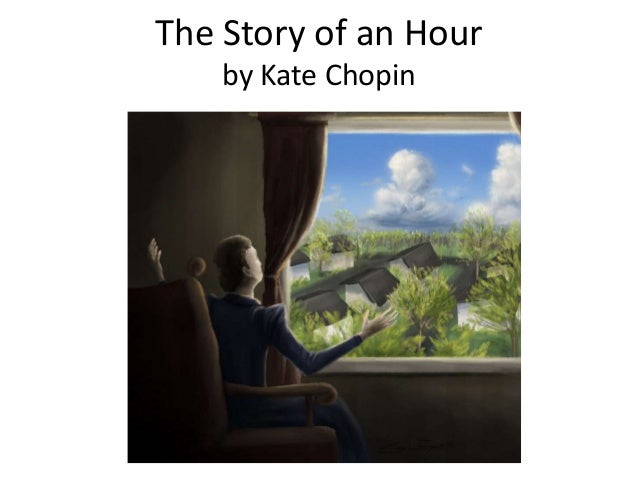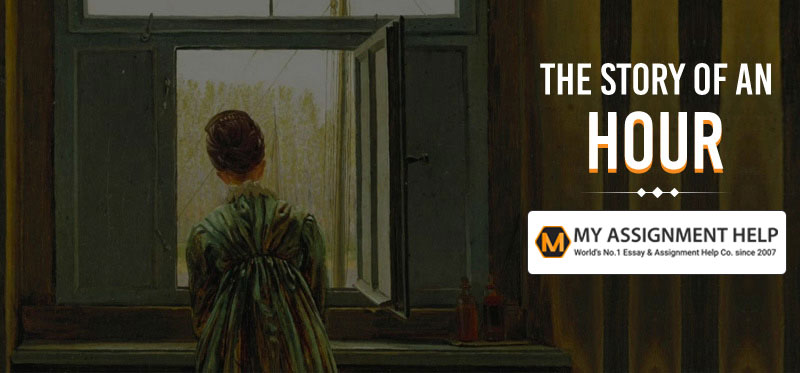Foreshadowing In The Story Of An Hour
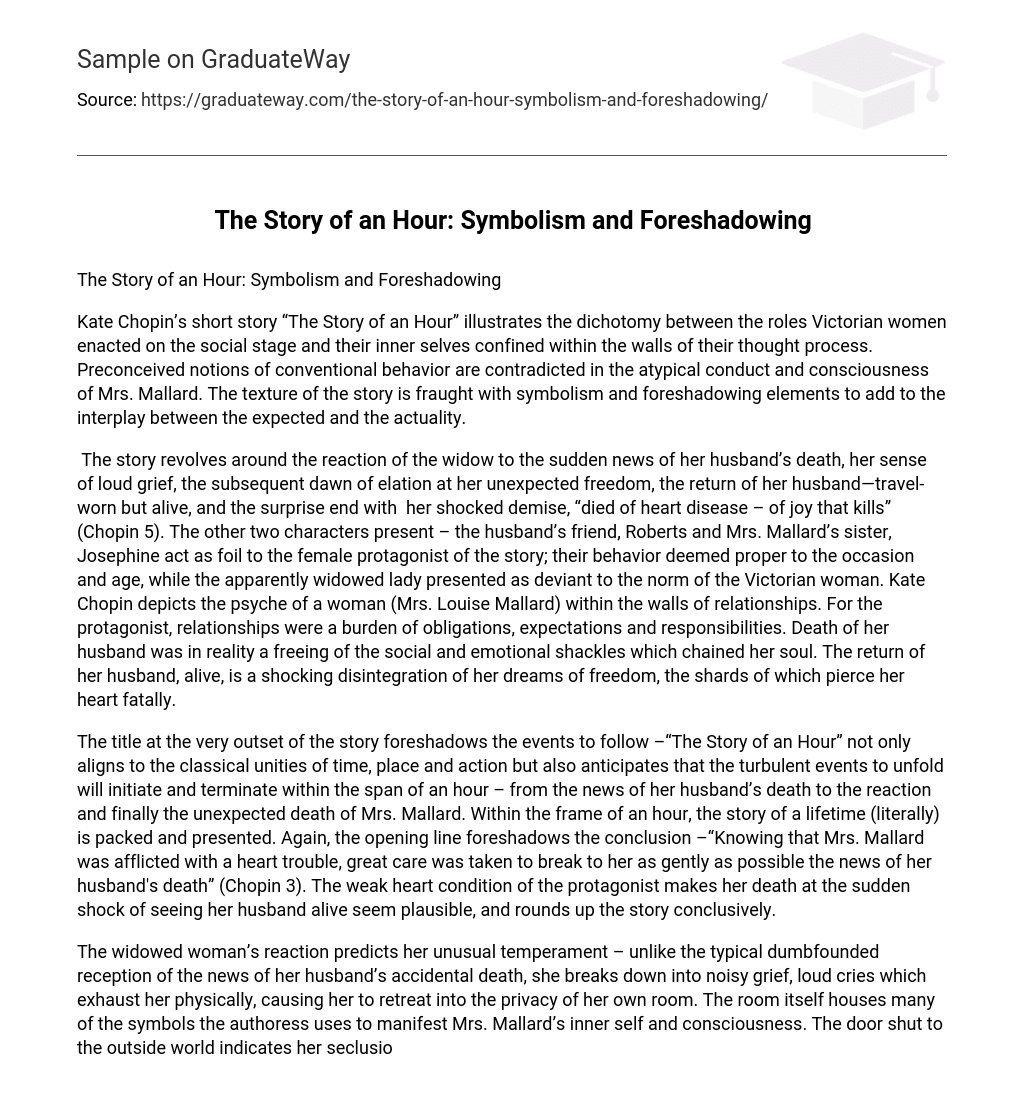
Ever read a story and think, "Wait, I saw that coming...sort of"? That's often foreshadowing at play! It's like the story is winking at you, hinting at what's to come. Let's peek at how it works in Kate Chopin's "The Story of an Hour," and trust me, it's more fun than it sounds.
The Telltale Heart...Condition
Right off the bat, we learn Louise Mallard has a "heart trouble." A clever author like Chopin wouldn't throw that in without a reason! It's like leaving a loaded (emotional) gun on the mantelpiece in Act One.
This heart condition isn't just a medical detail. It's a ticking time bomb! It sets the stage for the story's dramatic, and somewhat ironic, ending.
Open Windows and Open Minds?
Louise retreats to her room after hearing about Brently Mallard's supposed death. She stares out the window. What does she see?
The scene outside is vibrant: trees are budding, birds are chirping, and the air is filled with the sounds of life. It's a stark contrast to the grief one might expect from a woman who has just lost her husband!
This isn't just pretty scenery. It symbolizes the new life and freedom that Louise subconsciously craves. Think of it as nature subtly nudging her towards independence.
Whispers of "Free! Free! Free!"
As Louise grapples with the news, a word starts repeating in her mind. That word is "free." It's not shouted, but whispered, almost tentatively.
This inner mantra is huge! It foreshadows her ultimate realization that Brently's death, though tragic, could be her liberation. The repetition emphasizes the growing power of this idea within her.
The Unexpected Return
Remember that "heart trouble" we mentioned? Well, get this: Brently Mallard isn't dead! He walks in, perfectly fine, completely unaware of the emotional earthquake his supposed demise caused.
The foreshadowing of Louise's weak heart comes full circle here. The shock of seeing Brently alive, after experiencing such intense freedom, is too much for her. Tragic, yes, but also darkly humorous in a way.
It's like the story is saying, "Be careful what you wish for...especially if you have a pre-existing heart condition!"
Irony: The Ultimate Foreshadowing Trick
The doctors attribute Louise's death to "joy that kills." But we, the readers, know better. It wasn't joy, but the crushing disappointment of losing her newfound freedom that broke her heart.
This is dramatic irony at its finest! We know something the other characters don't. And it all goes back to those earlier hints and clues—the foreshadowing that made the ending both shocking and inevitable.
So, next time you read "The Story of an Hour," or any story, keep an eye out for those little winks and nudges. They might just reveal the whole plot before you even realize it!
